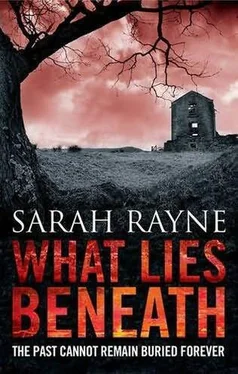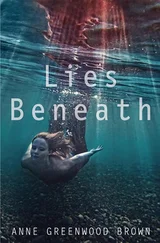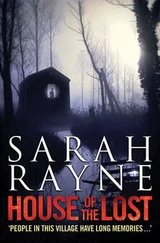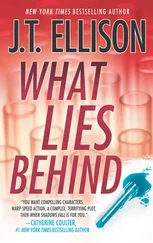‘In that case,’ said Gil, ‘Crispian and I will dine out. Give our regards to the paintings and the statues.’
Gil had been right about the bouillabaisse, which was delicious, and the Chablis they drank with it was excellent. Almost despite himself, Crispian found he was relaxing and enjoying Gil’s flippant conversation.
‘Here’s to you, Crispian,’ said Gil at one point, lifting his glass. His eyes were dark and glowing in the candlelit restaurant, and Crispian thought he was not completely sober. Then he thought he himself was not completely sober, either.
As if guessing his thoughts, Gil said, ‘I’m fairly tipsy, dear boy. You’ll have to take my arm to get me back to the ship.’ He appeared to be perfectly serious, and when they left the restaurant and Crispian did take his arm, he was acutely aware of the muscles beneath the cloth of Gil’s lightweight jacket.
They reached the ship around eleven and, as Crispian opened the door of his cabin, Gil leaned against the wall, watching him. It was infuriating to find this disturbing.
‘Am I to be asked in for a nightcap?’ said Gil. ‘Because I’ve got a bottle of brandy in my cabin I could fetch.’
Crispian hesitated, intending to say he would have an early night, but heard himself say, ‘Yes, we’ll have a nightcap. Shall we call Jamie in as well?’
‘Let’s keep it just to the two of us.’
Gil poured the brandy and when he passed Crispian the glass his fingers brushed Crispian’s hand, then lay against his palm for a moment. Crispian felt as if a thousand red-hot needles had slid under his skin. Oh God, he thought, I don’t have these kinds of feelings for another man, I don’t … He’s teasing me, that’s all.
He took the glass without speaking and went to sit on the narrow window seat beneath the porthole.
Gil’s next words surprised him. He said, ‘You’re a good liar, Crispian.’
This was such a clear echo of what Crispian’s father had said, that Crispian turned to stare at him.
‘What do you mean?’ he said at last.
‘My father told me the reason for this trip was recuperative,’ said Gil. ‘He said Sir Julius had suffered some kind of “brain fever”. That doesn’t mean a thing. It could be a cover for anything from epilepsy to plain old-fashioned dementia.’ He frowned, then in a more serious voice than Crispian had yet heard him use, said, ‘But I’ve watched Julius since we left England and I don’t much like what I’ve seen.’ He regarded Crispian over the rim of his brandy glass. ‘I’ve surprised you, haven’t I?’ he said. ‘Did you forget I’ve studied medicine for four years?’
‘I had forgotten for the moment,’ said Crispian. ‘But never mind. What is it you’ve seen?’
‘For one thing, your father has episodes of gaze palsy – an inability of the eyes to move in the same direction at the same time. At times the upper eyelids are retracted – creating a fixed downward gaze as if he’s constantly trying to examine his own lower lids. There’s also photophobia – extreme sensitivity to light. He shies from almost all forms of light, doesn’t he?’
‘Yes.’
‘There could be any number of reasons for those symptoms,’ said Gil. ‘I haven’t the experience to know. It could simply be poor eyesight. He’s perfectly rational for a large part of the time, but then a mental confusion seems to come down. Almost as if a curtain’s lowered. Time seems to blur for him, as well – as if he loses whole segments of it.’ He paused to sip his brandy. ‘What’s really wrong with him? And don’t ask for my opinion, because I’m a disgraced, three-quarters trained medical student so I’m not venturing a diagnosis.’
Crispian paused, then in an expressionless voice said, ‘He’s in the final stages of syphilis.’
Syphilis. The word came out softly but it was almost as if something in the small, too-warm cabin recoiled.
‘Dear God,’ said Gil, staring at him. ‘Syphilis. The roué’s disease. I should have thought of it – I always heard he was a bit of a rip in his younger days, your father.’
‘Apparently it can end in destroying the brain as much as the body – that’s what’s happening to him now,’ said Crispian. ‘Your father thinks he probably contracted it years ago and that it’s been undiagnosed until now.’
‘He’s kept it hidden?’
‘Yes. Your father also said it’s a disease that can lie dormant for years, but that it nearly always comes back.’
‘It does. I saw quite a number of cases when I was working on the wards at Guy’s. We used to get a lot of sailors coming in for treatment so I learned quite a bit about it. And I remember a lecture – some German scientist came up with a drug a few years ago. If I hadn’t drunk so much tonight I’d remember his name.’ He frowned, clearly searching his memory. ‘Ehrlich, that’s it. Paul Ehrlich. He called his drug— I’ll remember that in a minute, as well. Why does alcohol fog the brain? I know it was hailed as a miracle cure at the time – a “magic bullet”, they called it. Salvarsan, that’s the name. I don’t think it’s been very widely used. The mercury cure is still what most doctors try.’ A glint of flippancy showed. ‘A night with Venus and a lifetime with Mercury,’ he said. ‘That’s the old saying. But even mercury’s only a temporary cure.’
‘Your father said the mercury cure wasn’t worth trying,’ said Crispian. ‘He said the disease has progressed too far, and it’s a painful cure anyway.’
‘God, yes, it is. Even those hardened old sailors used to scream and beg the nurses to stop. But, Crispian, if my father said mercury wasn’t worth trying, you can trust his judgement. He’s a dry old stick, but he does know medicine.’ He paused again. ‘Not everyone dies from syphilis, but once it does get its claws in, it eats its way through flesh and nerve and brain tissue and… Julius is definitely in the final stage? The tertiary stage?’
‘Yes.’ Crispian remembered Gil’s father using this term. ‘He said it’s progressed to neurosyphilis.’
‘Dear God,’ said Gil. ‘Did he explain what that entailed?’
‘It affects the brain,’ said Crispian in an expressionless voice. ‘There might be personality changes. But whatever happens, he’ll end as a helpless maniac, probably more or less paralysed.’
‘General paralysis of the insane,’ said Gil, staring at him. ‘Oh, Crispian, I’m so very sorry. The poor sod. Has he got chancres? The sores?’
‘Some. He covers them up with scarves and gloves. His face was marked a while ago – blisters and sores – but they seem to have healed. For the moment, at any rate.’
‘Does Jamie know the truth?’ said Gil, suddenly.
‘I used your father’s term, “brain fever”, to Jamie,’ said Crispian. ‘He doesn’t know the truth, but he knows my father might be dangerous; that he has to be watched at all times. I had to tell him that much, because I needed an ally.’
‘And as well as Jamie you got an ally you didn’t bargain for with me,’ said Gil. ‘Well, even with an incomplete medical training I might be of some use.’
‘I wonder if that’s what your father had in mind,’ said Crispian, and Gil grinned.
‘More likely he wanted me out of England because of the hasty exit I had to make from Guy’s.’
‘Why did you have to make a hasty exit?’
‘Do I have to say?’
‘Perhaps better not,’ said Crispian, a bit too quickly.
‘How much does Julius himself know?’
‘He hasn’t been told he’s got syphilis. But he’s no fool.’
‘Does he know he’s dying?’
‘I don’t know.’
‘And so,’ said Gil thoughtfully, ‘you’ve brought him all these thousands of miles to die. Is that in case it gets out that the head of Cadences Bank is gradually becoming helplessly insane?’
Читать дальше












